Garrett Hedlund Quotes


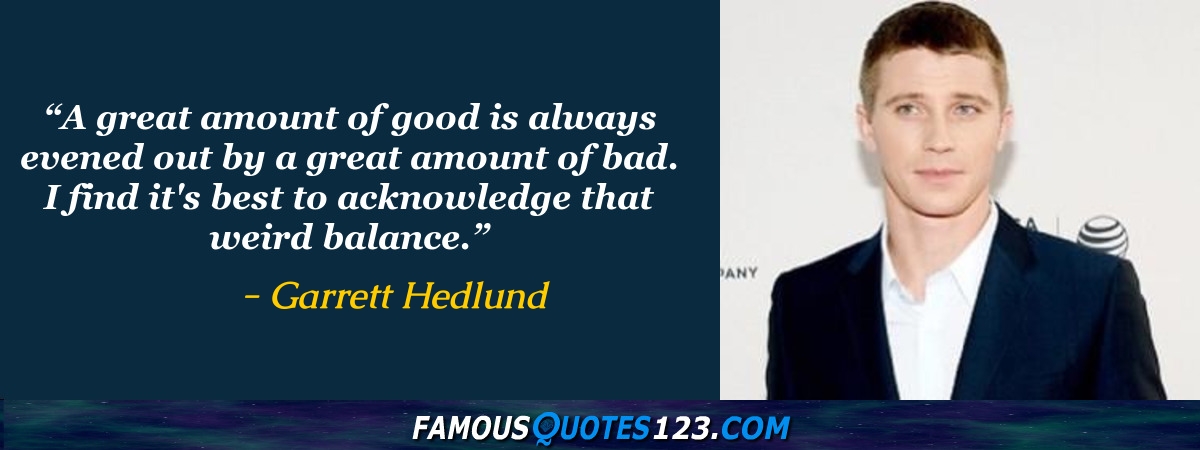
A great amount of good is always evened out by a great amount of bad. I find it's best to acknowledge that weird balance.
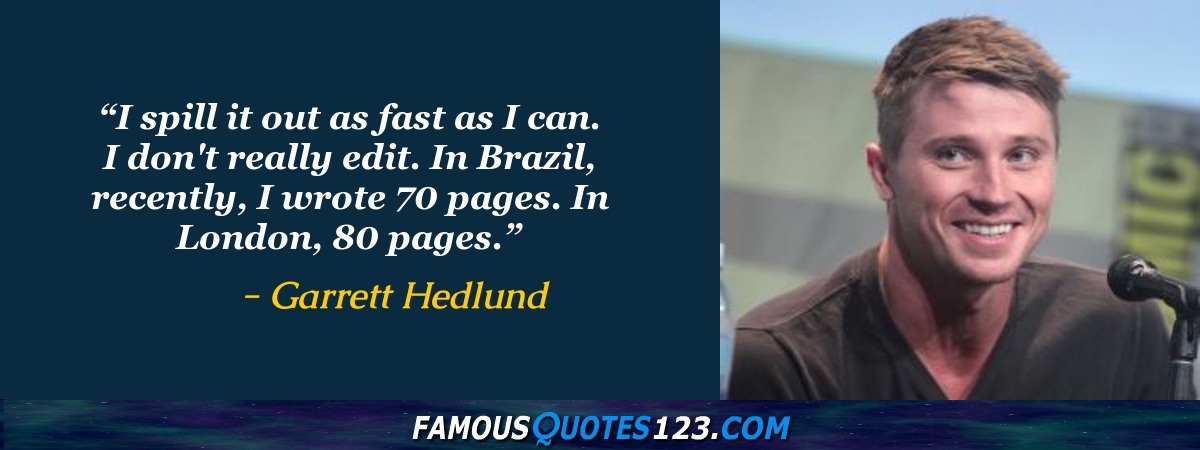
I spill it out as fast as I can. I don't really edit. In Brazil, recently, I wrote 70 pages. In London, 80 pages.
In the present time you don't really establish what you're going through, but after time it's declared something. Right now there could be some writers doing something expressing their thoughts in a whole different style that we're not aware of. This could be the 'in-between the notes generation.'
It's funny - I read that women look to chiseled-faced guys for one-night stands, and to round-faced guys for marriage. When I'm rounder in the face, I like to say, 'This is my long-term look.' Or 'This is my wife-and-kids look right here.'
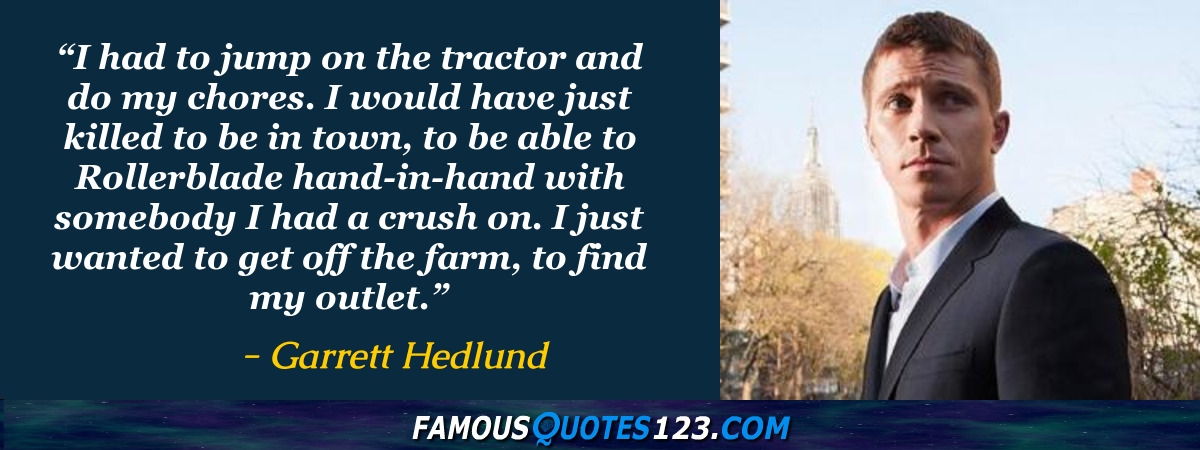
I had to jump on the tractor and do my chores. I would have just killed to be in town, to be able to Rollerblade hand-in-hand with somebody I had a crush on. I just wanted to get off the farm, to find my outlet.
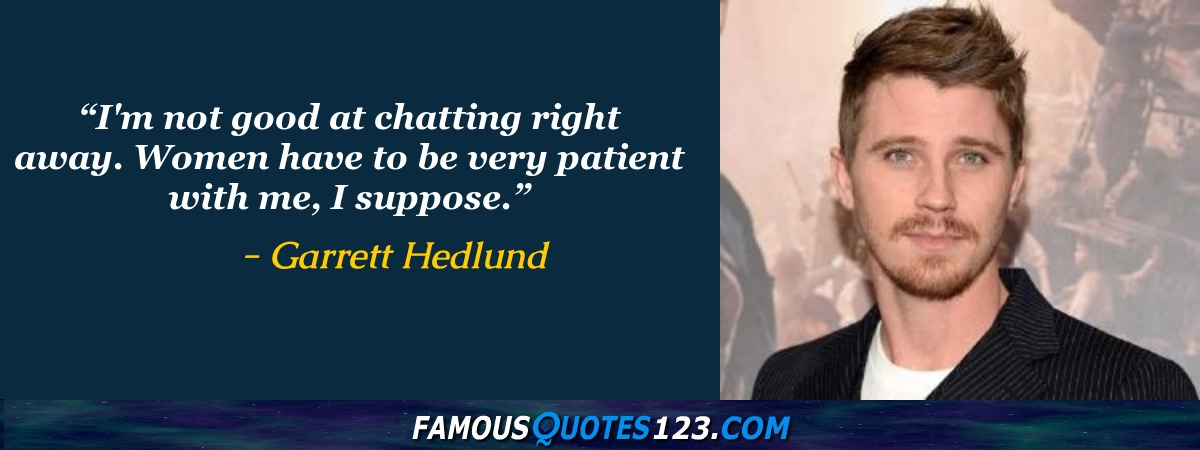
I'm not good at chatting right away. Women have to be very patient with me, I suppose.
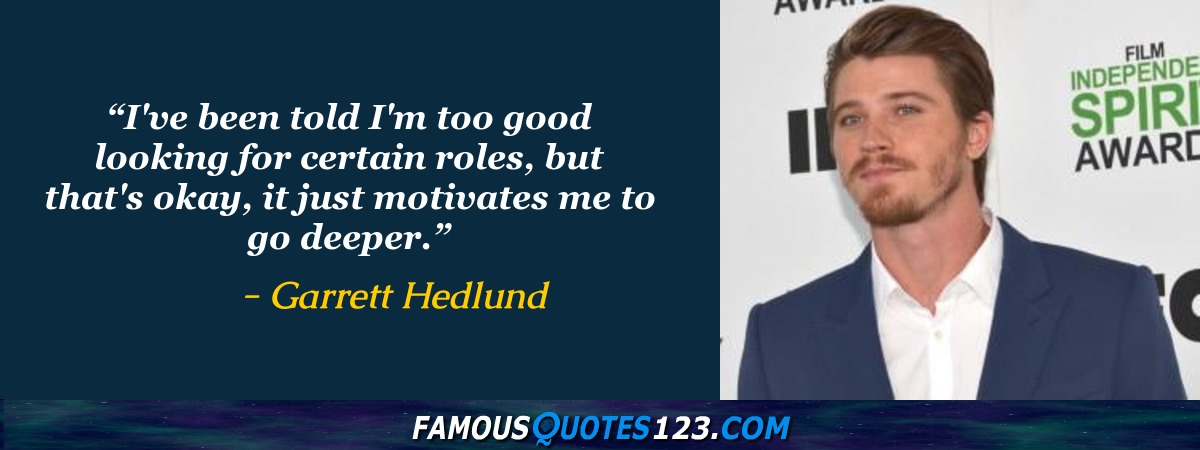
I've been told I'm too good looking for certain roles, but that's okay, it just motivates me to go deeper.
I've always had a longstanding dream, ever since I was a kid, where I was running on a big lake of ice and I kept running and kept running, just about to where I was trying to get to, and I fell through the ice, and then I couldn't find the hole where I fell through to get back out again.
'Love Don't Let Me Down,' which is the original title of 'Country Strong,' was just as difficult emotionally as 'Tron' was physically. I play a country singer that basically gets on tour with Gwyneth Paltrow's character, who is one of the biggest country stars out there, and she's fallen down too many times and it's an intense emotional story.
I grew up on a farm in a small town where you do or say one thing and everybody knows about it. You see it happen, there's always the town gossip - 'Oh did you hear about so and so, or did you hear what went on in this household?' So I learned at a very young age just to keep my mouth shut.
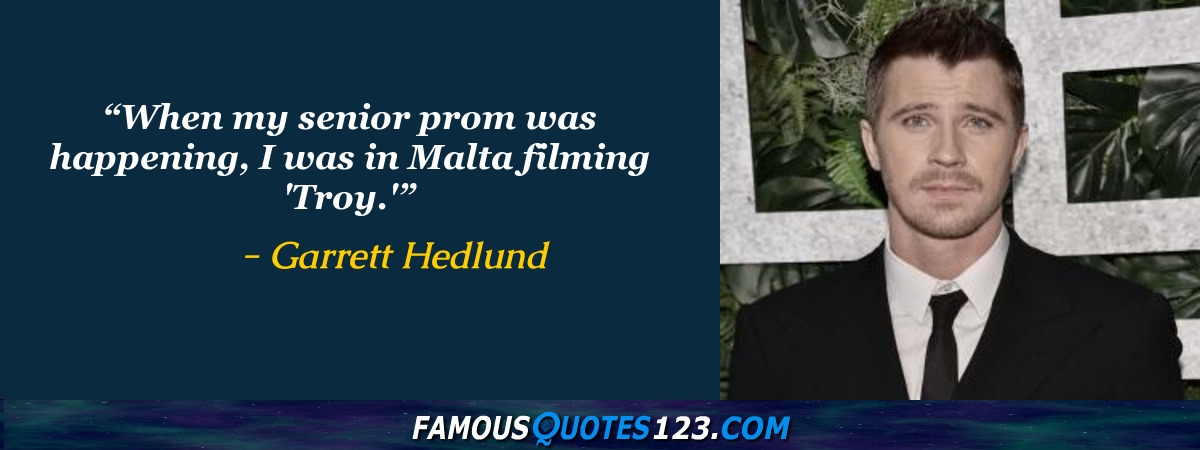
When my senior prom was happening, I was in Malta filming 'Troy.'
For me, and this may not be everybody, but because I do love country music so much, there's such a feeling of home in Nashville, especially because it's such a small town. You bring up one song, everybody knows who wrote it, everybody knows their mother and what their cell number is, and all of the stories.
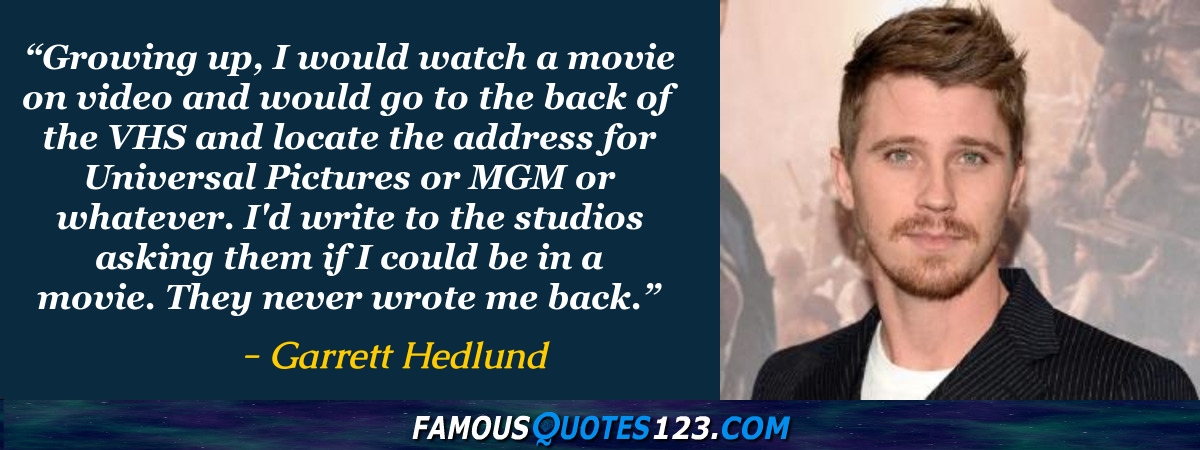
Growing up, I would watch a movie on video and would go to the back of the VHS and locate the address for Universal Pictures or MGM or whatever. I'd write to the studios asking them if I could be in a movie. They never wrote me back.
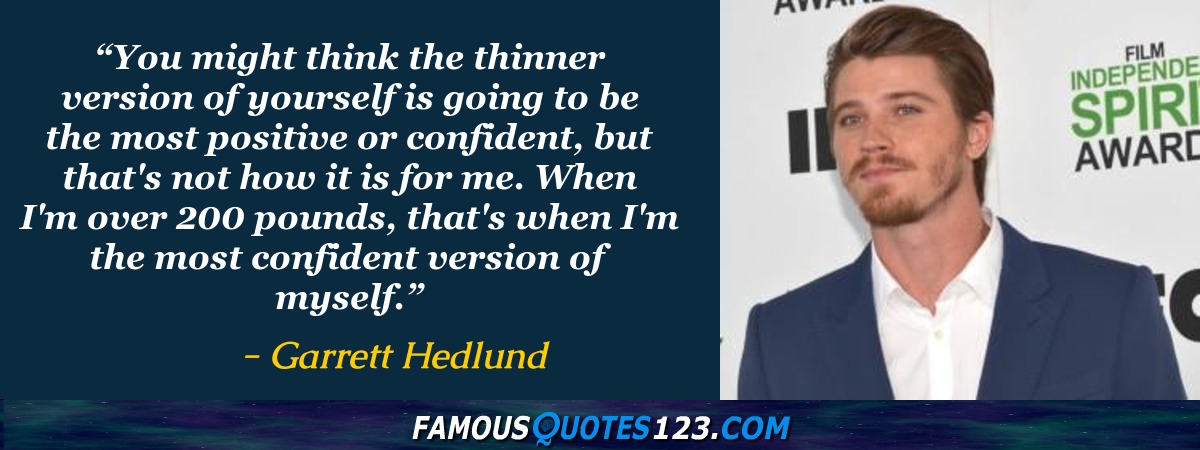
You might think the thinner version of yourself is going to be the most positive or confident, but that's not how it is for me. When I'm over 200 pounds, that's when I'm the most confident version of myself.
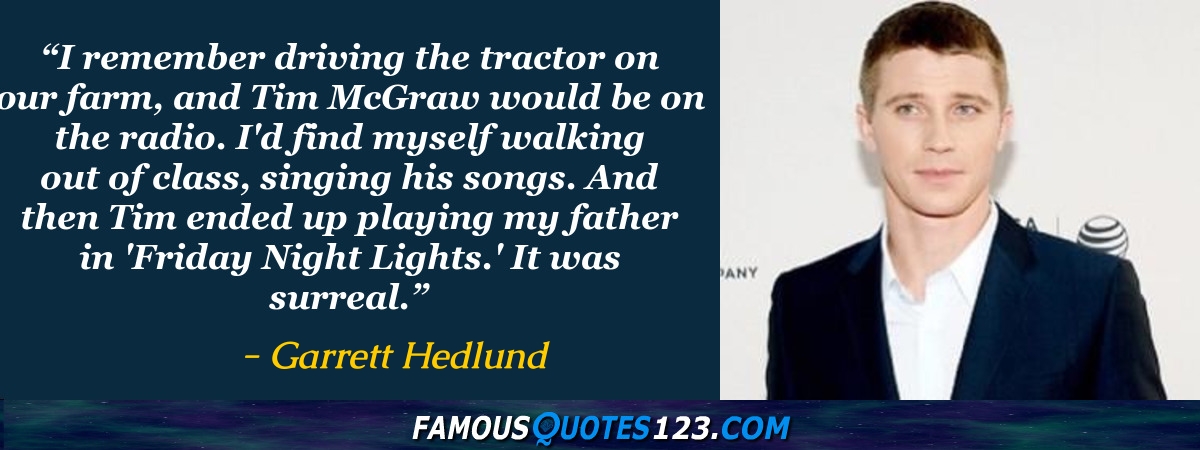
I remember driving the tractor on our farm, and Tim McGraw would be on the radio. I'd find myself walking out of class, singing his songs. And then Tim ended up playing my father in 'Friday Night Lights.' It was surreal.
The school I went to was a little farm school in Wannaska, student body 61 or something. There was a kid, the only black kid in our county, Dustin Byfuglien. He won the Stanley Cup a couple years back with the Blackhawks. Out of a class of 21 kids, he and I always had to be on opposite teams on everything because we were the most athletic.
When I read the 'Country Strong' script, I thought, 'Can't they just hand-double it? Can't I just do the rest of the movie and not have to do the performing?' It took me six months to learn to sing and play guitar at the same time.
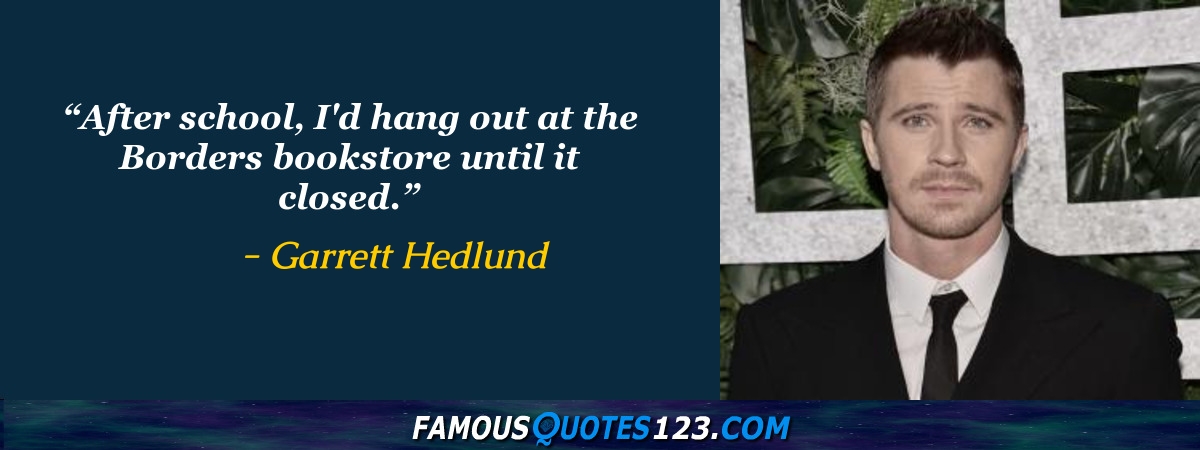
After school, I'd hang out at the Borders bookstore until it closed.
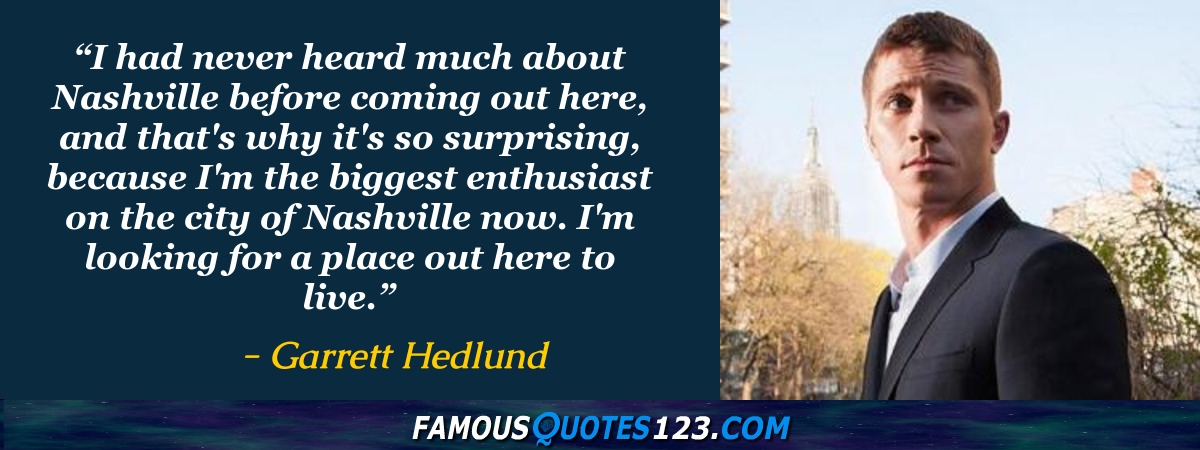
I had never heard much about Nashville before coming out here, and that's why it's so surprising, because I'm the biggest enthusiast on the city of Nashville now. I'm looking for a place out here to live.
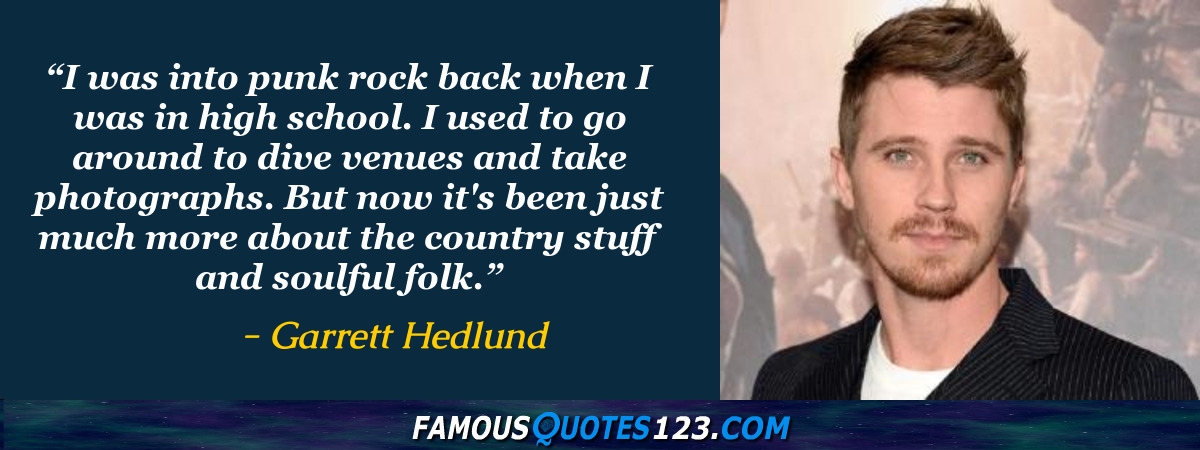
I was into punk rock back when I was in high school. I used to go around to dive venues and take photographs. But now it's been just much more about the country stuff and soulful folk.
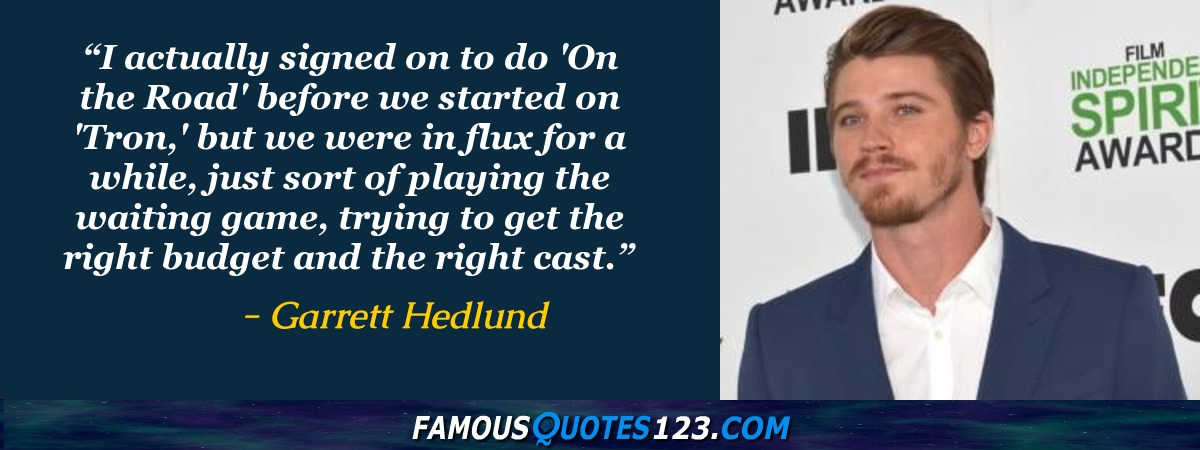
I actually signed on to do 'On the Road' before we started on 'Tron,' but we were in flux for a while, just sort of playing the waiting game, trying to get the right budget and the right cast.
Especially for me, growing up in such a small town in the middle of nowhere, the desire to be away was incredible. I wanted to see new lands, meet new people from the city, and meet people that were in much less fortunate situations than I was, so that I could be more appreciative of my present. At least I had food on the table.
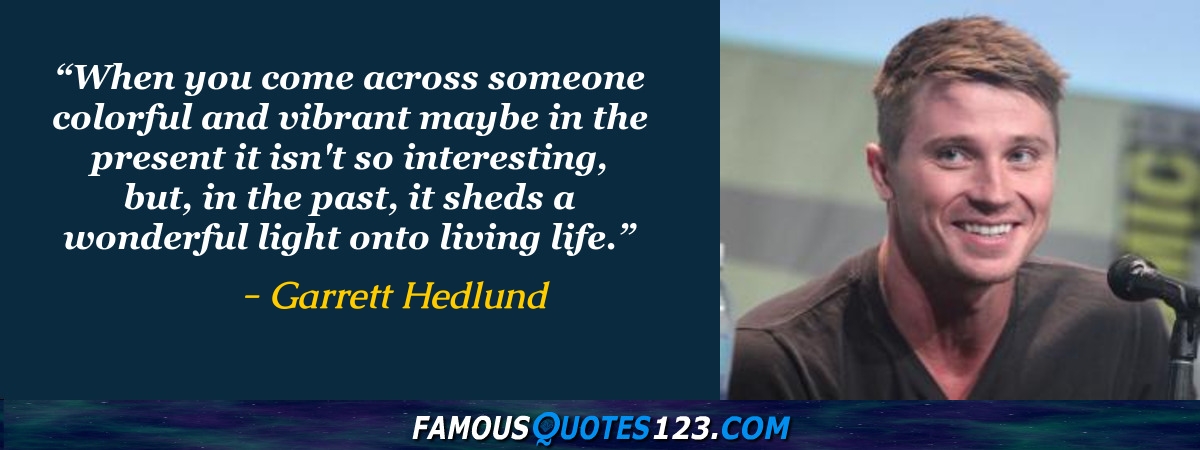
When you come across someone colorful and vibrant maybe in the present it isn't so interesting, but, in the past, it sheds a wonderful light onto living life.
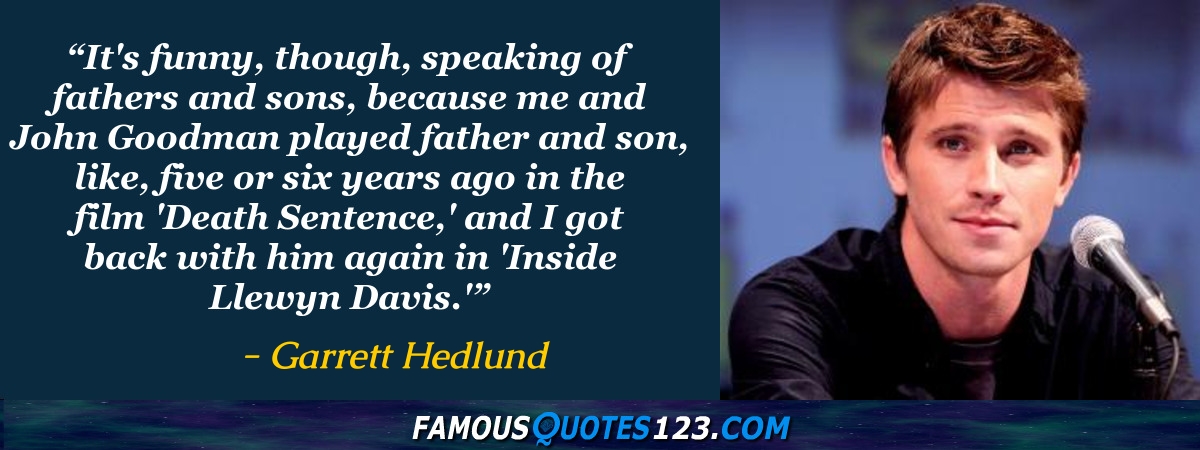
It's funny, though, speaking of fathers and sons, because me and John Goodman played father and son, like, five or six years ago in the film 'Death Sentence,' and I got back with him again in 'Inside Llewyn Davis.'
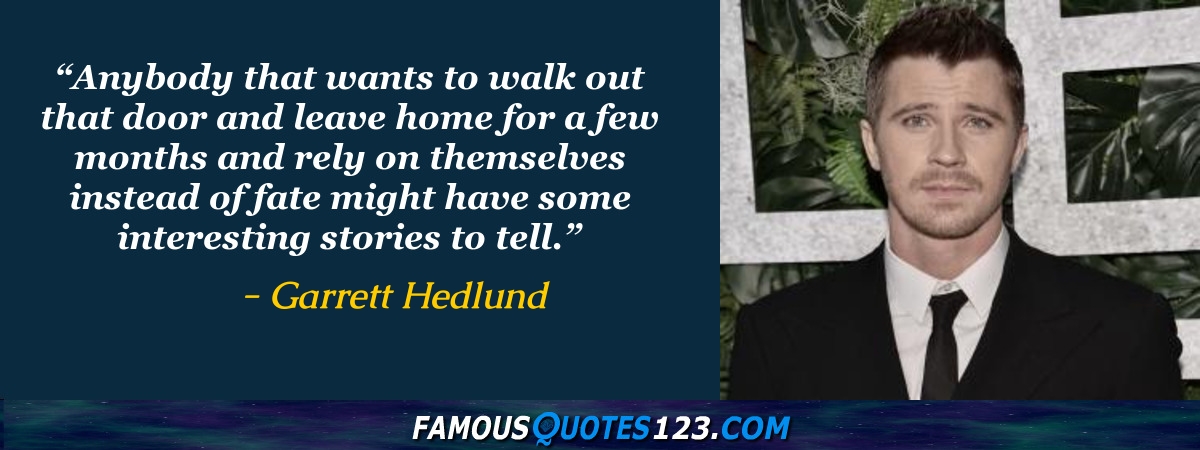
Anybody that wants to walk out that door and leave home for a few months and rely on themselves instead of fate might have some interesting stories to tell.
It's funny that I got to do 'On the Road' because the thing that had the biggest impact on me growing up was reading books. I was very inspired by the book and this spirit of Dean Moriarty and how envious we all are of somebody who can be that carefree.
My biggest thing has always been privacy. With an interview such as this where the questions are about me, I struggle to express myself. I have an immediate answer in my head of what I'd say, but sometimes I feel that it would be too honest. So these wheels of censorship start going around my head.
I've always romanticized the late '40s and '50s - the cars, jazz, the open roads and lack of pollution. Now there are more vehicles, less hitchhikers, more billboards and power lines and stuff. People wrote wonderful long letters that took months to receive, and now everything is email.
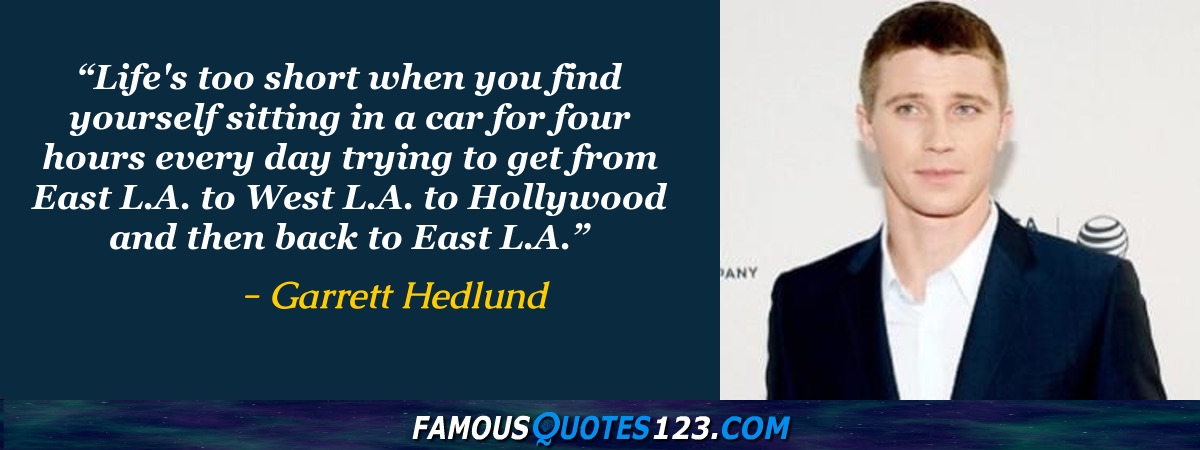
Life's too short when you find yourself sitting in a car for four hours every day trying to get from East L.A. to West L.A. to Hollywood and then back to East L.A.
I remember telling my creative writing teacher that you never want to have a journal, because if you lose it, then someone's going to know all your secrets. And then she stopped using a journal, but I always write everything down... Anytime I travel, I try and fill up notepads.
I fantasised about F. Scott Fitzgerald's 'The Great Gatsby' - I loved it, and then I read everything J. D. Salinger had to offer. Then I was turned on to Kerouac, and his spontaneous prose, his stream of consciousness way of writing. I admired him so much, and I romanticised so much about the '40s and '50s.
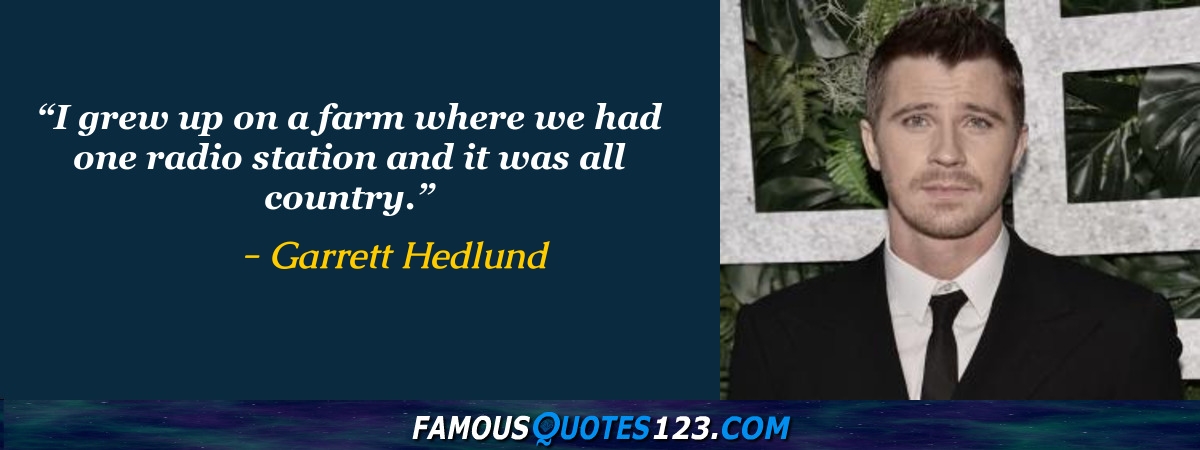
I grew up on a farm where we had one radio station and it was all country.
Just personally, I've been attached to 'On the Road' since 2007 and it was the greatest thing in my life when I got cast in it. I couldn't believe it. When I was 17 and read the book, I looked it up on IMDb and it said that Francis Ford Coppola was going to direct it.
See, the 'On the Road' that came out in 1957 was censored. A lot of the honesty of it, the bitter honesty, is in the original scroll version that came out in 2007 on the 50-year anniversary. Back then, there was so much post-Second World War fear that was imposed on everybody - 'You must live life this way' - and these guys were bored.
I was a 'Duck Hunt' and 'Mario' guy, and stuff like that. I was never technologically driven. I never had all the cool, new toys. I was the youngest child, I wasn't the only child, so I wasn't spoiled as a kid. And, we were on the farm, so we didn't have a lot. Also, with computers, I'm not very good with them. I just check my email.
It was close to like a 67- or 70-day shoot for 'Tron' on stage, in the suit. You can't even sit down during the day because of all the cables that divide the foam rubber and all the electrical circuits. We had these stools that were tall with a bicycle seat on them and you're just looking at a blue screen all day.
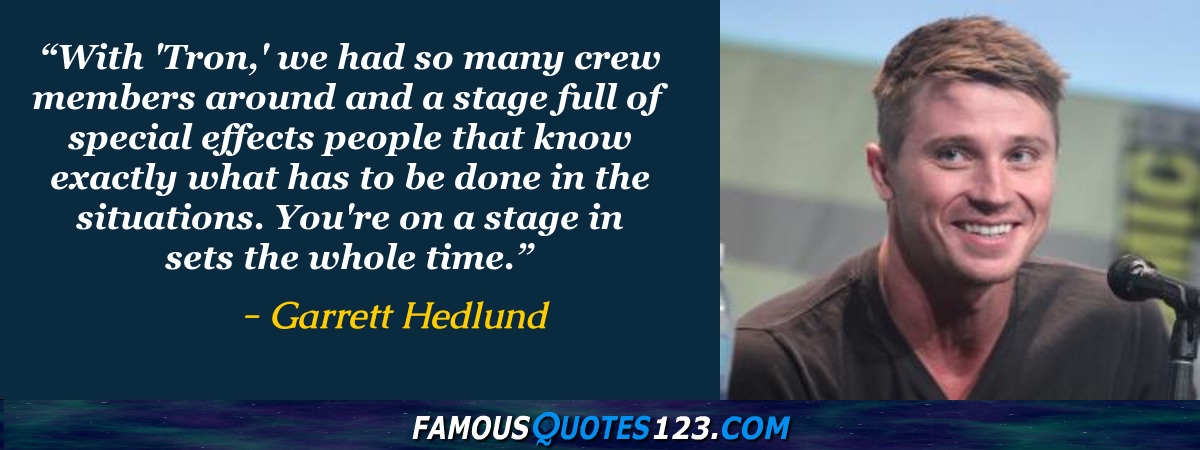
With 'Tron,' we had so many crew members around and a stage full of special effects people that know exactly what has to be done in the situations. You're on a stage in sets the whole time.
I used to be sick of the backroads of Minnesota. I had to drive 30 miles to get home every day, take the schoolbus for two hours. But to drive through America and see the backroads, from Nashville to Memphis, Lovick to New Mexico, was incredible. It was probably the greatest trip of my life.
Kerouac was the cowboy that inspired the whole Beat Generation, and highlighted and put the spotlight on all of these minds that didn't really know what they were doing at the time, but accomplished something much bigger than what they ever foresaw.
The Beat Generation - that term is even more familiar now, even more than say the '70s. Hype is built and established and people link it back to a certain generation, in this case the '40s and '50s. Now everyone knows that that group was the Beat Generation.
Nashville is a lot like my hometown. You learn so quickly once someone hears something about you or sees something, everybody talks about it at dinner. They know your business, so people tend to be more private and not to throw themselves into everyone's faces.
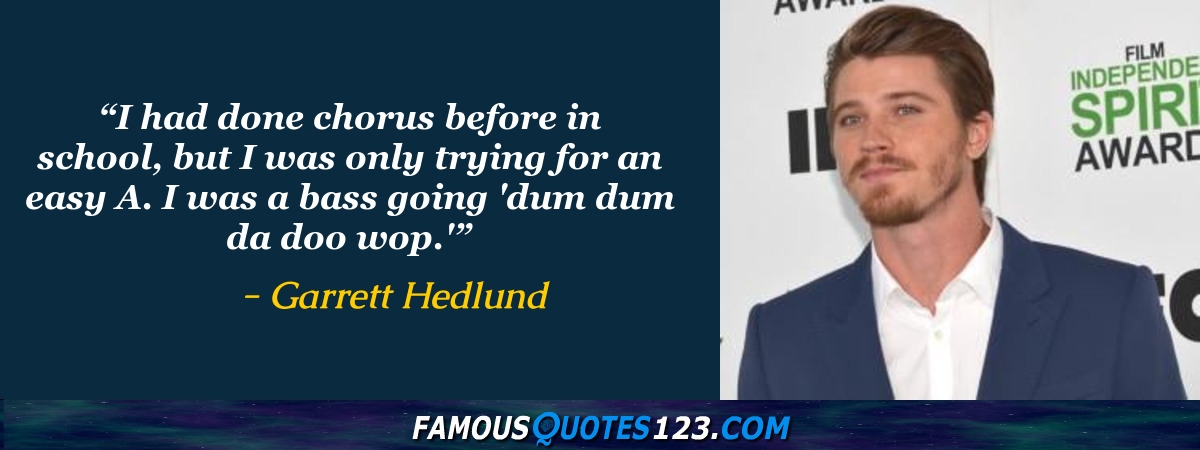
I had done chorus before in school, but I was only trying for an easy A. I was a bass going 'dum dum da doo wop.'